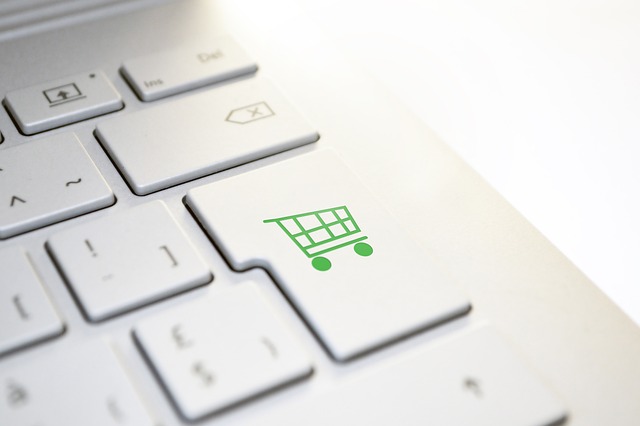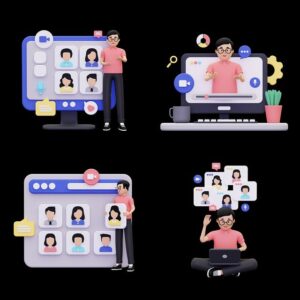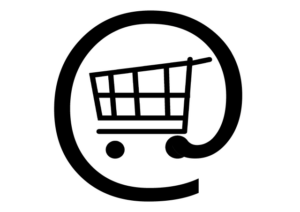
Private Internet Access (PIA) is an essential cybersecurity tool for medical professionals worldwide, offering robust encryption and secure IP addressing to protect sensitive patient data during online transmissions. By using PIA, healthcare providers can securely access and manage patient records remotely while maintaining communication privacy with colleagues internationally. PIA's services are crucial for defending against unauthorized data access, ensuring compliance with regulations such as HIPAA in the U.S. and GDPR in Europe, and thereby reinforcing the trust patients have in their care. With a global server network, PIA enables medical professionals to securely connect to the internet without revealing their location or identity, further shielding both practitioners and their patients from cyber threats. This VPN service is indispensable for creating a secure digital space for healthcare providers, ensuring patient confidentiality, and safeguarding the integrity of medical resources and research on a global scale. It provides a reliable means to handle sensitive health information securely, adhering to stringent data protection laws, and empowers medical professionals globally to fulfill their ethical obligation to protect patient data, contributing significantly to the delivery of quality healthcare services.
In an era where data breaches and cyber threats loom large, the imperative for robust online security measures cannot be overstated, especially within the sensitive domain of healthcare. The article at hand delves into the critical role Private Internet Access (PIA) plays in safeguarding the digital identities and communications of medical professionals across the globe. This exploration sheds light on the intricacies of maintaining data security and anonymity in a field where confidentiality is paramount. Through detailed examination, we will uncover the salient features of PIA tailored for medical experts, and present compelling case studies that underscore its efficacy in protecting the lifeblood of global health—information. Join us as we navigate the complexities of cybersecurity in medicine, highlighting PIA’s indispensable role in ensuring the privacy and security of sensitive data worldwide.
- Understanding Private Internet Access for Medical Professionals Globally
- The Importance of Data Security and Anonymity for Healthcare Practitioners
- Key Features of Private Internet Access Relevant to Medical Experts
- Case Studies: How Private Internet Access Has Protected Medical Professionals Worldwide
Understanding Private Internet Access for Medical Professionals Globally

Medical professionals around the world handle sensitive patient data daily, making them prime targets for cyber threats. The digital landscape for healthcare is fraught with risks, from data breaches to targeted phishing attacks. In this context, Private Internet Access (PIA) for medical professionals worldwide becomes a critical safeguard. PIA provides robust encryption and anonymous IP addressing, ensuring that sensitive health information remains confidential during transmission. This level of security is paramount when accessing patient records remotely or communicating with colleagues across different regions. By using PIA, medical practitioners can secure their communications against unauthorized access, maintain compliance with healthcare regulations like HIPAA in the United States or GDPR in Europe, and uphold the trust placed upon them by patients worldwide. Furthermore, PIA’s network of servers globalizes the ability of medical professionals to safely connect to the internet without exposing their location or identity, thereby protecting both their data and that of their patients from potential cyber threats. Ensuring secure access to medical resources and research, PIA is an indispensable tool for maintaining patient confidentiality and fostering a safe digital environment for healthcare providers on a global scale.
The Importance of Data Security and Anonymity for Healthcare Practitioners

In an era where digital footprints can be as revealing as a medical history, healthcare practitioners globally are increasingly recognizing the critical role of data security and anonymity in their professional practice. The sensitive nature of patient information necessitates robust privacy measures to protect against unauthorized access and breaches. This is where Private Internet Access (PIA) for Medical Professionals Worldwide becomes indispensable. PIA’s secure VPN servers offer a shield for healthcare workers to transmit and store patient data safely, ensuring compliance with stringent healthcare regulations like HIPAA in the United States and GDPR in Europe. By encrypting data and masking IP addresses, PIA enables these professionals to maintain patient confidentiality, a cornerstone of trust between healthcare providers and patients. The global reach of PIA ensures that no matter where medical practitioners are, they can maintain a secure and private connection, safeguarding the sanctity of patient privacy across borders. This is particularly crucial in regions with increasing cyber threats and where healthcare data is a lucrative target for cybercriminals. With PIA, medical professionals worldwide can uphold their ethical duty to protect patient information, fostering an environment of safety and trust essential for quality healthcare delivery.
Key Features of Private Internet Access Relevant to Medical Experts

Medical professionals worldwide handle sensitive patient data daily, necessitating robust cybersecurity measures to protect this information from breaches and leaks. Private Internet Access (PIA) offers a suite of features tailored for medical experts who require secure and private access to medical records, research data, and communication channels. One of the key features of PIA is its zero-log policy, which ensures that no browsing history or traffic data is stored, thus providing an additional layer of privacy for healthcare workers. This commitment to user privacy is paramount in maintaining the confidentiality of patient information and safeguarding against unauthorized access.
Furthermore, PIA’s global server network allows medical professionals to securely connect to servers around the world with high-grade encryption protocols such as WireGuard, OpenVPN, and IKEv2/IPSec. This not only enables secure remote access for healthcare workers who may be operating from different locations but also masks their IP addresses, offering anonymity and reducing the risk of cyberattacks that often target sensitive medical data. Additionally, PIA’s integration with secure protocols like Shadowsocks facilitates bypassing censorship and firewalls, which can be particularly useful for medical experts in regions where internet freedom is restricted. These features combined make Private Internet Access an indispensable tool for medical professionals worldwide who are dedicated to maintaining the integrity and privacy of patient information in an increasingly connected world.
Case Studies: How Private Internet Access Has Protected Medical Professionals Worldwide

Private Internet Access (PIA) has emerged as a critical tool for medical professionals worldwide, particularly those who handle sensitive patient data or research. Case studies have demonstrated PIA’s effectiveness in safeguarding the confidentiality of communications and protecting the privacy of users against cyber threats. In one instance, a network of healthcare workers in a conflict-ridden region successfully used PIA to secure their remote communication channels with international medical advisors. This allowed for the safe exchange of critical patient information without the risk of interception or data breaches, which could have compromised patient privacy and safety.
Another case study involves a global health organization that conducts research on contagious diseases. Their work often requires sharing sensitive data across various countries with varying data protection laws. By implementing PIA, they ensured that their data remained encrypted and secure, maintaining the integrity of their research and protecting the privacy of participants. These examples underscore the importance of robust security measures like PIA for medical professionals navigating the complexities of global health issues. The use of PIA has not only facilitated the safe handling of sensitive information but also upheld the ethical responsibility to protect patient confidentiality in a digital age.
Global journalism operates under the shadow of increasing digital threats, making robust cybersecurity solutions indispensable. As evidenced by recent events, medical professionals worldwide face similar challenges in safeguarding sensitive patient data and maintaining anonymity. “Private Internet Access for Journalists Worldwide” delineates the critical role such VPN services play in securing communications and protecting privacy. By leveraging the insights gleaned from the healthcare sector—where Private Internet Access has proven its efficacy—journalists can adopt a suite of protective measures to secure their work against cyber threats, data breaches, and surveillance. The key features outlined for medical experts are equally applicable to the journalistic community, emphasizing the necessity of encryption, secure connections, and privacy-centric protocols in today’s digital landscape. Case studies illustrate the tangible benefits and real-world applications of Private Internet Access, underscoring its value as a tool for maintaining confidentiality and integrity in global journalism. As the need for such digital armor becomes more pressing, the adoption of Private Internet Access for journalists worldwide stands as a testament to resilience in the face of evolving cybersecurity challenges.







